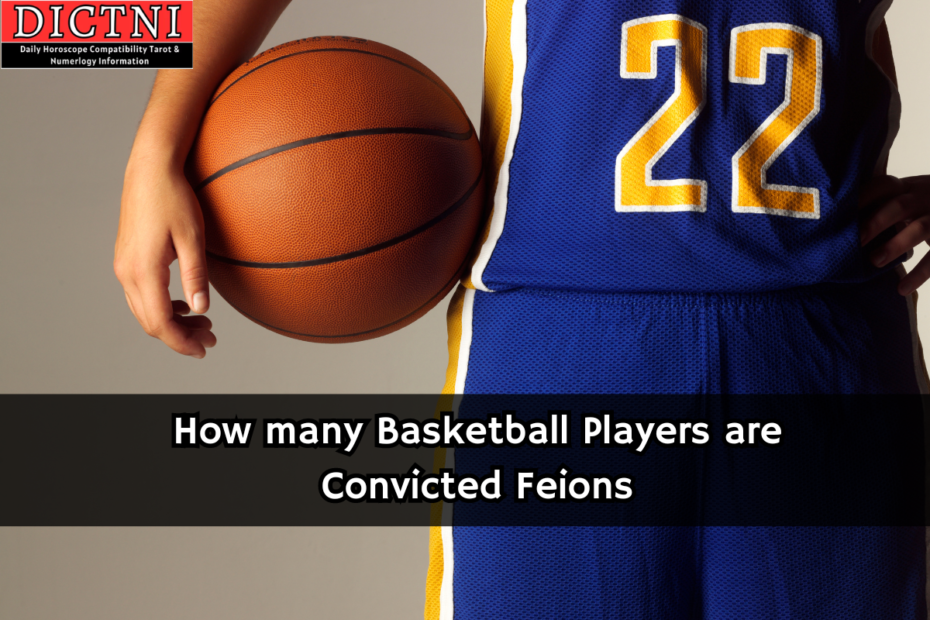Introduction
The world of professional basketball, which is frequently praised for its exciting matches and motivational tales, is not exempt from the difficulties of everyday life. Some players may encounter legal difficulties. The controversial subject of basketball players with criminal convictions is explored in this article, which also looks at the frequency of these cases, their effects on careers, and the sport’s larger ramifications.
Basketball Players’ Actual Criminal Conviction Rate
Diversity of Backgrounds: People from a variety of backgrounds, each with unique life experiences and obstacles, are drawn to the basketball profession, just like to any other. As a reflection of the wider social realities, certain athletes may run into legal issues throughout their careers or after they retire.
High-Profile Cases: Throughout the years, there have been cases where prominent basketball players have been charged with crimes. The media pays close attention to these instances, highlighting the relationship between sports, celebrity, and the legal system.
Types and Prevalence of Convictions
Assault Charges: Several basketball players have been charged with assault, frequently as a result of confrontations that occurred on or off the court. These incidents make one wonder where the boundaries are between hostility, competition, and illegal activity.
Drug-Related Offenses: Charges of possession or distribution of drugs have had an impact on the careers of some athletes. These incidents demonstrate the difficulties faced by athletes who are coping with problems like substance abuse and addiction.
Cases of Domestic abuse: Reports of domestic abuse affecting basketball players have drawn attention to the wider social problem of violence against intimate partners and the need of professional athletes to serve as positive role models.
Financial Crimes: Basketball players have occasionally been subject to legal repercussions for financial offenses like embezzlement or fraud. These incidents highlight how crucial it is for athletes to have sound financial management skills.
Effect on Professions
Legal Repercussions: A criminal conviction may have a number of legal repercussions, such as fines, probation, community service, or jail time. The type and seriousness of the offense determine how severe these penalties will be.
Professional sports leagues, such as the NBA, have procedures in place to deal with player behavior, including suspensions and fines. In order to uphold the integrity of the sport, leagues may impose fines, suspensions, or other disciplinary measures in response to convictions.
Public Image and Endorsements: A player’s marketability and public image can be severely damaged by legal issues. Athletes facing criminal charges may lose their sponsorship arrangements and long-term income potential if sponsors and businesses cut connections with them.
Rehabilitation and Redemption: A number of players are able to overcome the obstacles presented by their criminal convictions by going through the stages of rehabilitation and redemption. Personal development, asking for forgiveness, and making apologies within the larger community are all part of this process.
Broader Consequences for the Activity
Professional sports leagues are always improving their policies for player conduct, with a focus on the value of ethical behavior and personal accountability. This is achieved through league policies and player education. The goal of player education initiatives is to give athletes the knowledge and skills they need to make wise decisions on and off the court.
Effect on Team Dynamics: Individual players’ legal issues may have a cascading effect on the dynamics of the team. Navigating the effects of criminal convictions on the locker room environment and overall team morale is a challenge for teammates, coaches, and management.
Public Perception of the Sport: Notoriety-grabbing court cases involving basketball players have the power to shape how the general public views the sport. It becomes a tough effort for the basketball community to strike a balance between acknowledging the difficulties faced by certain players and celebrating their physical successes.
Advocacy for Social Justice: Conversations on more general social issues, such as systemic problems pertaining to racism, socioeconomic status, and resource availability, are sparked by the intersection of criminal justice issues with sports. A few athletes use their position to promote social justice reform.
Conclusion
Basketball players with prior criminal records make up a delicate and complicated part of the sports world. Even while legal issues might have a negative impact on an athlete’s career, it’s important to handle these matters delicately and acknowledge the complexity of the difficulties that people encounter. In order to solve these issues, the basketball community—which consists of leagues, teams, and players—must promote a culture of accountability, support, and personal development.
The sports community has a chance to add to larger discussions about criminal justice reform, mental health awareness, and the obligations of athletes as prominent individuals as the debate about criminal convictions in basketball continues. In the end, resolving the intricacies of legal issues in basketball necessitates working with others and showing empathy in order to address the underlying issues and promote the overall wellbeing of players on and off the court.
